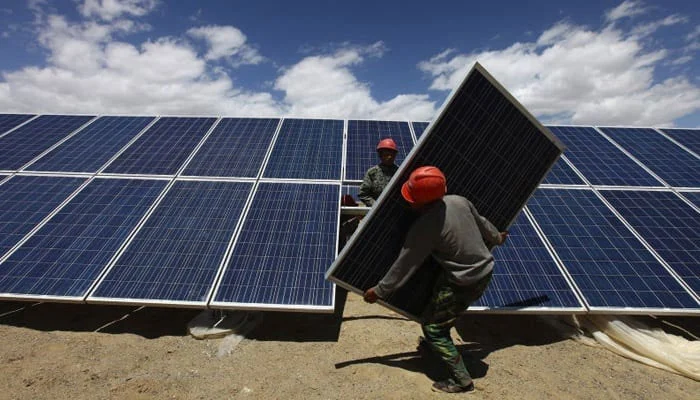Solar Panel Distribution
KARACHI: The Sindh government has announced a significant initiative to alleviate the financial burden of electricity bills on its residents by providing solar-powered electrical systems to 200,000 households.
This move is part of a broader effort to offer relief to families grappling with the rising costs of electricity and the resultant high utility bills.
During an event held at the chief minister’s residence in Karachi on Saturday, Chief Minister Murad Ali Shah outlined the details of the initiative.
He emphasized that the distribution of solar panels will address the current energy crisis and help mitigate the impact of soaring electricity bills.
This decision comes in response to widespread protests across Pakistan, including a notable sit-in by Jamaat-e-Islami in Rawalpindi, demanding relief from exorbitant power costs.
In the last fiscal year, the federal government approved a substantial 26% increase in electricity tariffs. This was followed by an additional 20% hike announced on July 13 by the administration of Prime Minister Shehbaz Sharif.
These increases have exacerbated the financial strain on the public, prompting calls for a forensic audit of Independent Power Producers (IPPs) due to allegations of inflated bills.
In response to the growing demand for sustainable and cost-effective energy solutions, solar panels have become an increasingly popular choice among domestic consumers.
The Sindh government’s plan includes providing these panels to low-income families with an 80% subsidy.
Beneficiaries will also include those registered with the Benazir Income Support Programme (BISP). The panels provided will be sufficient to power a single fan and three light bulbs.
Chief Minister Shah further revealed that the government aims to extend this solar initiative to a total of two million households.
Additionally, all government buildings are set to transition to solar power, with 34 buildings already converted. The first phase of this project is expected to generate 400 megawatts of electricity.
The Sindh Solar Energy Project is supported by the World Bank, which is providing $100 million in funding.
This initiative mirrors similar efforts in Punjab, where the “Roshan Gharana” program has been launched to provide solar panels to 4.5 million citizens. Punjab’s program covers 90% of the panel costs, with the remaining 10% to be paid by consumers in easy installments over five years.
The Sindh government’s solar panel distribution plan represents a significant step toward addressing energy challenges and promoting sustainable energy practices in the region.
I am a dynamic professional, specializing in Peace and Conflict Studies, Conflict Management and Resolution, and International Relations. My expertise is particularly focused on South Asian Conflicts and the intricacies of the Indian Ocean and Asia Pacific Politics. With my skills as a Content Writer, I serve as a bridge between academia and the public, translating complex global issues into accessible narratives. My passion for fostering understanding and cooperation on the national and international stage drives me to make meaningful contributions to peace and global discourse.










